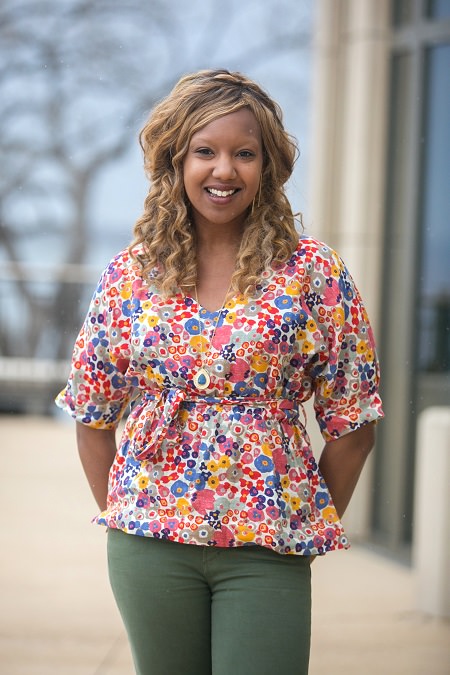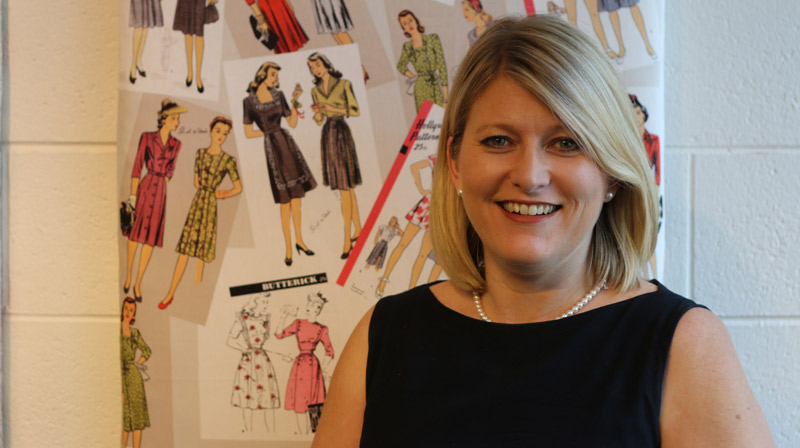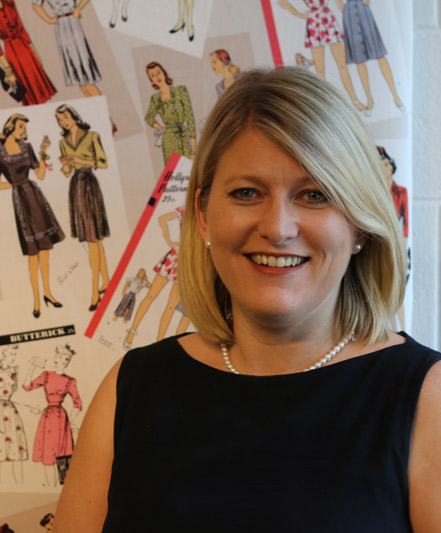 Have you ever considered a career in writing? You may or may not have formal training and wonder if you have what it takes to make a full-time career from something that you love. Whether it is through monetizing a personal blog or landing a job with a magazine, if the idea of writing excites you, you will love this interview with Rachel Werner.
Have you ever considered a career in writing? You may or may not have formal training and wonder if you have what it takes to make a full-time career from something that you love. Whether it is through monetizing a personal blog or landing a job with a magazine, if the idea of writing excites you, you will love this interview with Rachel Werner.
Rachel is the digital editor of Brava Magazine a Wisconsin-based publication and a freelance writer, and the social media manager of “The Celebration Society, another subsidiary of Nei Turner Media Group. Not only that’s she’s also a fitness instructor, health coach and a 2016-17 national WomenRide4Change Ambassador! Her passionate commitment to holistic wellness and sustainable agriculture keeps her a Midwestern girl at heart.
In this interview, she shares how she went from blogging to becoming a published writer in both regional and national publications. As she mentions in this interview, it is “okay to struggle” while pursuing your craft, but it is possible to follow your dream of becoming a writer.
Hi Rachel! Would you tell our readers a little about you and your role with BRAVA Magazine?
I am currently the digital editor of BRAVA, a Wisconsin-based magazine created by women for women and subsidiary of Nei-Turner Media Group. I’m also the social media manager of another Nei-Turner publication and brand, The Celebration Society, for which I curate trending wedding content and engaging event images aimed at increasing the visibility of The Celebration Society’s brand.
In particular, I enjoy overseeing the culinary, arts, fashion and beauty coverage in my current roles and has previously contributed print, photography and video content for other media outlets around the country such as Madison Magazine, Big Life, Entrepreneurial Chef and Hobby Farms Magazine—all while maintaining side gigs as a fitness pro, a 2016-2017 national cycling WomenRide4Change Ambassador and a 2017 World Food Championships Top Ten Finalist judge.
You have been a freelance writer for several years, can you tell us a little about that?
A precarious mix of passion and life circumstance served as the impetus for the career arc I am currently on. In hindsight, writing seems to have continuously intersected with my academic, professional and/or personal pursuits on some level even when it wasn’t necessarily the primary focus. I also do not have a degree in journalism or English (I common question I am asked).
But seven years ago, I found myself grappling with a significant number of life shifts: a divorce, single parenting, transitioning from a social work position at a nonprofit into the fitness industry. As a coping mechanism, I began to daily transfer my concerns, emotions and observations “onto the page” as a way of processing life. What began as mere journaling evolved into blogging, which then sparked a curiosity to see if I could further hone my writing skills and perhaps supplement my income via this blossoming delight.
I decided to take a writing working through University of Wisconsin-Madison’s continuing education studies department. I did not know it at the time, but that one decision would serve as the biggest catalyst for launching my freelance career. People often ask how I “did it.” And the honest truth is I literally followed almost verbatim the tips and seasoned advice the instructor shared on how to determine a writing niche, pitch articles and connect with editors. And it worked! Within three years, I went from being virtually unknown as a blogger to becoming a published writer in numerous regional and national publications and the assistant editor at BRAVA.
What is one thing you wish you would have known before pursuing a career in writing?
The one thing that I wish I had known before I started to seriously consider writing as an occupation is that it really is okay to struggle for a stretch in pursuit of your craft. And that writing can have tremendous VALUE on a personal and professional level, filled with objectives for both that are not necessarily mutually exclusive. Also, the power of networking. DO NOT EVER underestimate the potential impact of foraging connections within and outside of your current sector or industry and where that could potentially lead.
What tactics do you use when writing? Do you outline or do you simply sit down and start writing?
Probably my most “signature” hallmark as a writer is that I almost always take notes by hand. I also never audio record subjects when I interview them or “google” them before we meet or speak via phone. I prefer my impressions and interactions to be as organic as possible. I think it helps me retain details more clearly once I am ready to compose the piece. I have a myriad of journals I make notations in, which merely serve as a reference point if needed once the actual writing begins. I also rarely delete an email, preferring instead to file most correspondence away in digital folders, rendering it easily accessible if early communications could potentially shed light on an event, person and/or topic down the road.
Do you have tips on how we could become better writers?
If you want to become a better writer, seek out ways to receive regular feedback on your work. Join a writing group or enroll in a workshop or an intensive like The Fifth Semester or Upod Academy. Public libraries, colleges, writer associations and book festivals can also all be useful resources for finding this sort of info. By no means does one need to pursue a MFA degree, but if that resonates with you on some level, GO FOR IT! The most important thing is to connect with others just as invested in this art form—and to carve out time to write on a consistent basis.
How do you stay inspired?
I stay inspired by reading: classics, memoirs, picture books…I love it all! I almost never watch TV unless it’s a sports event or I am at the gym working out so books are my primary way to “disconnect” or wind down at day’s end. Also, a long-term goal of mine is to become a published author. I currently have two first drafts of contemporary fiction that I am plugging along on and three children’s books I am revising and pitching to editors.
What words of encouragement or wisdom would you like to share with a woman just starting off in this industry?
The best advice I have to share is the same wisdom which was imparted to me early on: “Get comfortable with rejection because you’re going to hear a lot of ‘NO’s’. But as long as you keep refining your ideas and pitches, eventually someone IS going to like one of your ideas enough to give you a shot.”
You can follow Rachel’s adventures around the country on Instagram: @therealscript.




 Merilyn is an inspirational leadership & life-direction mentor who has worked internationally for over 25 years helping businesses and their owners grow. Now she’s helping women find their ‘wow’ and lead their own worlds – using her decades of professional experience in branding, strategic direction and leadership development flavoured by her down-to-earth and creative personality. You can find her at
Merilyn is an inspirational leadership & life-direction mentor who has worked internationally for over 25 years helping businesses and their owners grow. Now she’s helping women find their ‘wow’ and lead their own worlds – using her decades of professional experience in branding, strategic direction and leadership development flavoured by her down-to-earth and creative personality. You can find her at 

 From a background in marketing consulting, Rebecca Wilson applies her entrepreneurial passion and love for community through Starts at 60. Rebecca founded Starts at 60 in 2012 to offer the information, insights and ideas those in the over-60 age group are looking for. Starts at 60 is a news, blog and information website, and online community for over-60s in Australia and New Zealand.
From a background in marketing consulting, Rebecca Wilson applies her entrepreneurial passion and love for community through Starts at 60. Rebecca founded Starts at 60 in 2012 to offer the information, insights and ideas those in the over-60 age group are looking for. Starts at 60 is a news, blog and information website, and online community for over-60s in Australia and New Zealand.